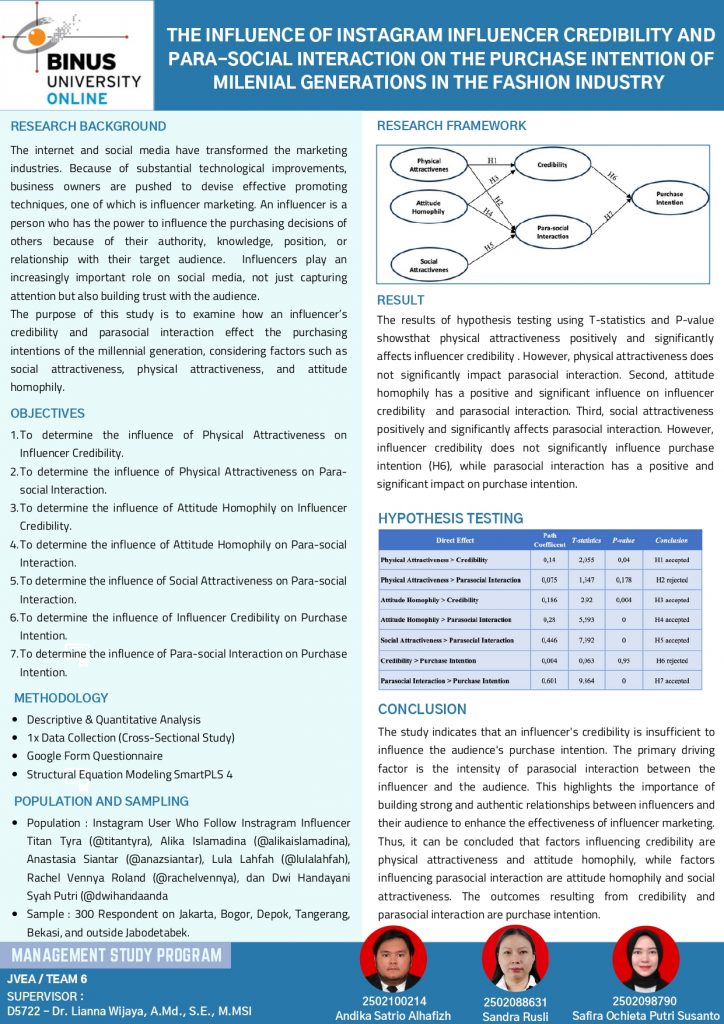The Influence of Instagram Influencer Credibility And Para-Social Interaction On The Purchase Intention of Milenial Generations in The Fashion Industry
The study aims to examine how an influencer’s credibility and parasocial interaction affect the purchasing intentions of the millennial generation. Factors considered include social attractiveness, physical attractiveness, and attitude homophily. The results show that while physical attractiveness positively affects influencer credibility, it does not significantly impact parasocial interaction. Attitude homophily and social attractiveness significantly influence both credibility and parasocial interaction. Parasocial interaction has a strong impact on purchase intention, while credibility alone does not suffice to influence purchase decisions



Comments :